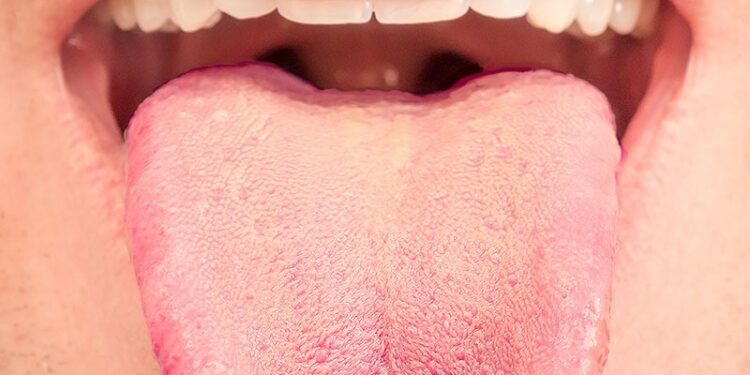[ad_1]
TOPLINE:
A new analysis found that mean radiation dose to the tongue mucosa did not improve predictions of taste impairment in patients with head and neck cancer (HNC) compared with mean dose to the oral cavity, which is the current model for predicting taste impairment.
METHODOLOGY:
- Taste impairment is a common side effect of radiotherapy in patients with HNC and can significantly affect patients’ quality of life. Dose to the oral cavity has been used in normal tissue complication probability (NTCP) models to predict taste impairment during and following radiation, but researchers looked at whether dose to the tongue mucosa was a better predictor.
- Researchers validated a tongue mucosa-based tool and assessed whether dose to the tongue mucosa can improve the performance of NTCP models that predict acute and late taste impairment in patients with HNC.
- The analysis included 691 patients with HNC who received curative radiotherapy between 2007 and 2022. Researchers compared the performance of the NTCP model involving tongue mucosa mean dose with that of the reference NTCP model involving oral cavity mean dose.
- Using a quality-of-life questionnaire, participants scored taste impairment prior to treatment, during treatment, and at follow-up intervals, rating impairment on a 4-point Likert scale.
- The primary endpoint was moderate to severe patient-rated taste impairment at 6 months posttreatment; secondary endpoint included taste impairment at 12 months and at week 6 posttreatment.
TAKEAWAY:
- Moderate to severe taste impairment was reported by almost 57% of patients at week 6 posttreatment, 27.6% of patients at 6 months, and 19.0% of patients at 12 months, compared with 4.9% at baseline.
- At 6 and 12 months, the performance of the NTCP model using tongue mucosa mean dose was similar to that of the reference model using the oral cavity mean dose, suggesting that mean tongue mucosa dose was not a better predictor of taste impairment.
- More specifically, the adjusted NTCP model using tongue mucosa mean dose showed similar abilities to predict taste impairment at 6 months compared with the model using oral cavity mean dose (area under the curve [AUC], 0.73 for both). Similar results were observed at 12 months (AUC, 0.75 for both; P =.50).
IN PRACTICE:
“The tongue mucosa mean dose did not improve the prediction of taste impairment during and after radiation therapy compared to the reference NTCP model based on the full oral cavity,” the authors concluded. “These results suggest that the tongue mucosa and oral cavity contain similar information in terms of predictive power of taste impairment.”
SOURCE:
This study, led by H. Neh, University Medical Center Groningen, Groningen, the Netherlands, was published online in Radiotherapy and Oncology.
LIMITATIONS:
The assessment of taste impairment relied on patient-reported outcomes, which may have been influenced by various factors, including changes in eating habits and other oral complications. Compared with previously published studies, this study included a large proportion of patients with larynx cancer in the cohort, resulting in lower mean dose values in the oral cavity and tongue region and lower prevalence of taste impairment.
DISCLOSURES:
This study was funded by KWF Dutch Cancer Society through a Young Investigator Grant. One author reported receiving salary support from NWO ZonMw via the VENI grant. Another author declared being a member of the Global Advisory Board of IBA. The Department of Radiation Oncology of University Medical Center Groningen has research agreements with IBA, RaySearch, Siemens, Elekta, Mirada, and Leoni.
This article was created using several editorial tools, including AI, as part of the process. Human editors reviewed this content before publication.
[ad_2]
Source link : https://www.medscape.com/viewarticle/can-radiation-dose-tongue-mucosa-predict-taste-loss-head-2025a10004s4?src=rss
Author :
Publish date : 2025-02-25 06:01:13
Copyright for syndicated content belongs to the linked Source.














